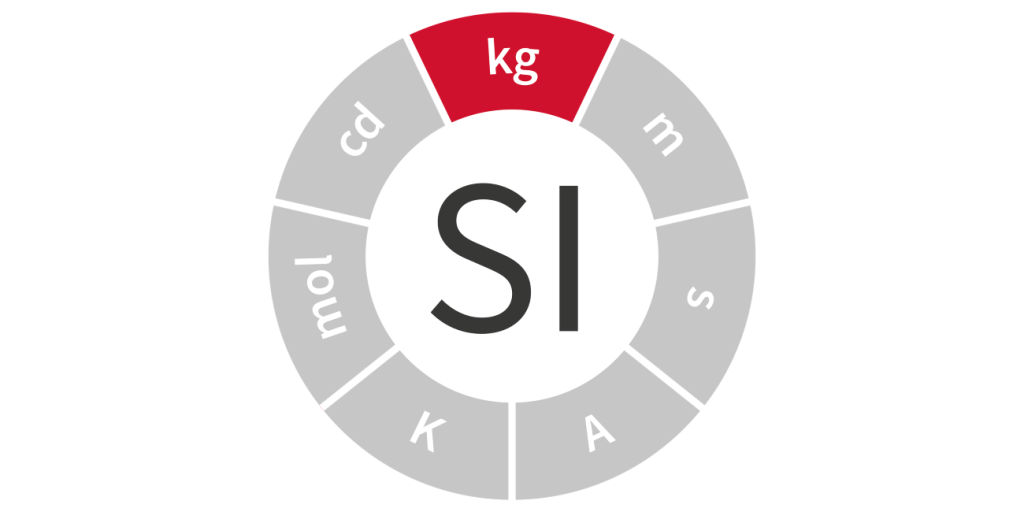

Accurately measuring the mass of an object is essential in many applications, from administering the optimum dose of a drug to correctly manufacturing materials with the desired properties.
For more than a hundred years we compared the gravitational force on an object with the gravitational force on a reference piece of metal known as a ‘standard weight’. The standard weight was in turn compared with the International Prototype of the Kilogram (IPK). The IPK is held in the International Bureau of Weights and Measures in France, which was the ultimate reference for all mass measurements. However, the value of the IPK may have changed since it was produced in 1884; contamination, cleaning or time may have increased or decreased its mass.
Since the revision of the SI on 20 May 2019, we can now compare the gravitational force on an object with an electromagnetic force using a Kibble balance. This allows the kilogram to be defined in term of a fixed numerical value of the Planck constant, a constant which will not change over time.
The Kilogram and Mass Metrology course is part of the National Physical Laboratory’s (NPL) Fundamentals of Metrology training programme. The programme is comprised of seven standalone modules, each corresponding to one of the seven SI base units. The module is delivered via a series of pre-recorded video lectures.
This course includes the following topics:
Learners who successfully complete the course will receive an NPL Certificate of Completion.
Recommended Pre-learning
To lay the foundations for this module, it is recommended that all learners complete the two half-day NPL e-learning courses: Introduction to Measurement and Metrology and Introduction to Measurement Uncertainty.